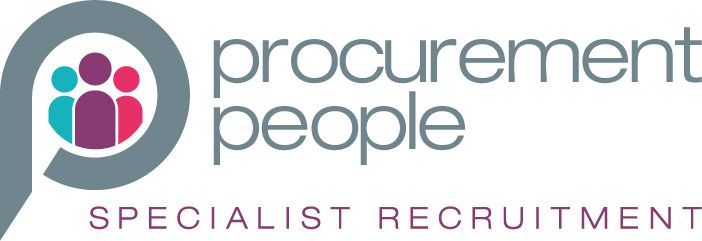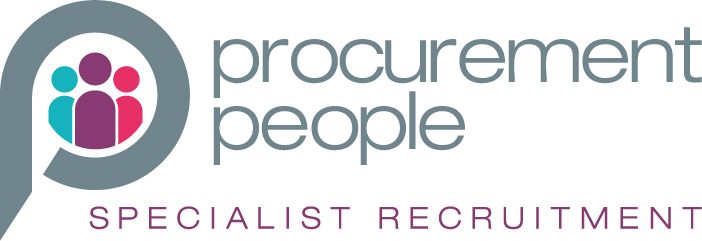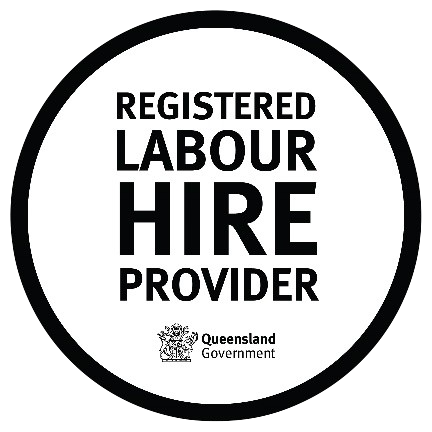Industry Articles
Helpful information for job seekers and employers
Our industry articules includes a range of recruitment advice, resources and guides.
Here you'll find everything from candidate tips on resume writing, and interview preparation to advice for employers.

In today’s competitive job market, finding the right talent can be challenging. Partnering with a recruitment agency offers several advantages that can help streamline your hiring process and ensure you secure the best candidates for your business. 1. Access to Candidates One of the key advantages of working with recruiters is the expanded access to talent. Recruiters build extensive networks and maintain robust databases in their areas of expertise, giving them access to candidates that may not be visible to your business. Whether through long-standing relationships or strong brand recognition, recruiters can connect with candidates who aren’t actively looking but are open to new opportunities. This means you could be missing out on the best candidates by relying solely on job ads. 2. Industry Expertise Recruitment agencies often specialise in specific industries, meaning they already have a pool of highly qualified candidates at their fingertips. Internal teams, on the other hand, might struggle to cover roles across various departments, which can be time-consuming and challenging. Recruiters bring in-depth knowledge of the industry and are equipped to fill even the most difficult positions. Their insights into market trends and candidate expectations help ensure your hiring strategies are always ahead of the curve. 3. Save Time The hiring process can take up lots of time and effort, often taking weeks to sift through applications, conduct screenings, and arrange interviews. Recruiters however, handle the entire process, from candidate sourcing to final negotiations, allowing your team to stay focused on their core responsibilities. By maintaining an ongoing pipeline of pre-vetted candidates, recruitment firms significantly shorten the time-to-hire, ensuring you don’t miss out on top talent due to delays. 4. Salary Benchmarking Keeping up with current salary trends can be a challenge as rates fluctuate constantly. Recruitment agencies regularly conduct local market research and often publish salary guides, making it easier for employers to stay competitive. Armed with up-to-date information on salary expectations, businesses can confidently enter negotiations and secure the talent they need without overpaying or underbidding. 5. Reduce Turnover and Save Money Poor hiring decisions can lead to significant financial losses, making it essential to get it right the first time. Recruitment agencies offer thorough vetting processes, including technical assessments, cultural fit evaluations, and background checks. By ensuring the right match from the start, recruiters help reduce turnover and the associated costs. 6. Flexible Partnerships to Suit the Business Recruitment agencies offer flexible partnership models to meet different business needs. The contingency model, where you only pay the recruiter upon a successful hire, is ideal for ad-hoc hiring. 7. Strategy Recruiters can work with your business to develop a flexible hiring strategy that meets your specific needs, whether you’re looking to fill a single position or multiple roles across the company by a set deadline. Their expertise in various sectors allows them to provide both quality and quantity in their candidate searches. By managing the entire hiring process—from sourcing and vetting to interviews and negotiations—recruiters enable your business to focus on long-term growth and strategy. Conclusion Investing in your recruitment process offers significant immediate and long-term benefits, providing a strong return on investment. By leveraging the expertise of a recruitment company, you can access top talent, save time and money, and benefit from flexible hiring solutions. The value of partnering with a recruitment agency goes far beyond filling a vacancy. It’s about building a stronger, more resilient business.

Introduction The procurement and supply chain industry in Australia is navigating a dynamic job market characterised by evolving demands and emerging opportunities. In Sydney, a city central to many of the nation’s key industries, understanding these trends is crucial for both employers and job seekers. From the rise in technological integration to the focus on sustainability, several factors are influencing the landscape. Demand for Skills Currently, in the Sydney job market, there is a strong demand for professionals with specialised skills in contract management, category management, and supply chain management particularly within IT, facilities management, and infrastructure. This demand is driven by rapid growth in IT investment, significant infrastructure projects including transport, utilities, and urban developments, and the increasing complexity of facilities management due to urban expansion, technology integration, and evolving regulatory requirements related to sustainability and energy efficiency. Candidates with over five years of experience in these areas are especially sought after. Additionally, there is a growing need for procurement specialists with expertise in risk management, assurance, and governance. These roles often require strong analytical and reporting skills, as well as the ability to interpret data and drive strategic decisions. Furthermore, strong interpersonal skills are crucial, as these professionals must effectively communicate insights and influence stakeholders to implement data-driven strategies. The healthcare, FMCG, mining, energy, education, and infrastructure sectors have seen consistent contractor engagement, due to the project-based nature of work. Many roles are tied to specific projects such as infrastructure development or IT upgrades which require specific specialised skills for a short period of time, making permanent employment less necessary. This trend is particularly evident in industries like infrastructure and energy where large-scale government funded projects require a temporary increase in workers. Moreover, some sectors like healthcare and education may also rely on contractors to address skill shortages or meet short term needs during peak periods. Specifically, there is a noticeable trend towards hiring professionals who can manage complex contracts and assess supplier performance effectively. Senior supply chain managers, particularly those with automation skills, remain in high demand, reflecting the industry’s shift towards more efficient and technology-driven operations. Impact of Technology Technology continues to reshape the procurement and supply chain landscape, with automation and data analytics playing pivotal roles. The integration of advanced technologies has led to a demand for professionals who can manage and optimize automated systems, streamline processes, and harness data for strategic decision-making. Candidates with a strong understanding of digital tools and platforms, as well as those who can adapt to the fast-paced technological changes, are increasingly valuable. A recent poll we conducted, revealed that 57% of industry professionals believe AI and automation will have the biggest impact on procurement and supply chain in the next five years. This highlights the critical need for candidates to upskill in these areas to stay competitive. The use of AI and machine learning in procurement processes is also gaining traction, particularly in areas such as supplier management and risk assessment. As companies seek to enhance efficiency and reduce costs, the ability to implement and oversee these technologies is becoming a key differentiator for job seekers in the industry. Candidate Trends The job market for procurement and supply chain professionals is also being influenced by candidate preferences and challenges. Our recent poll revealed that the biggest challenge candidates face in their job search within procurement is finding relevant job openings, with 58% of respondents identifying this as their primary concern. This suggests that, despite the demand for specialised skills, the approach to advertising roles may be unintentionally discouraging potential candidates. When job postings list numerous specialist skills as essential rather than desirable, it can discourage qualified individuals from applying. Instead of the issue being a lack of available opportunities, it may come down to how the role is presented. It is crucial for employers to carefully distinguish between essential and desirable criteria to attract the most suitable talent. In light of this, it’s important for employers to clearly communicate the specific skills and experiences they are looking for, particularly in emerging areas such as sustainability and ethical sourcing. As 38% of professionals view sustainability initiatives as a major trend, roles related to sustainable sourcing and ethical procurement practices are likely to see increased interest from both employers and job seekers. Future Outlook Looking ahead, the procurement and supply chain job market is expected to continue evolving in response to technological advancements and global economic conditions. The demand for specialized skills, particularly in areas like automation, data analytics, and risk management, is likely to remain strong. Additionally, as sustainability becomes a growing concern, there may be an increased focus on roles related to sustainable sourcing and ethical procurement practices. Candidates can prepare for these changes by upskilling in areas such as digital literacy, data analysis, and sustainability. Continuous learning and staying abreast of industry trends will be essential for those looking to remain competitive in the job market. These are my findings within the procurement and supply chain job market as of August 2024. If you would like to discuss these insights further or have additional perspectives to share, please feel free to reach out and continue the conversation on 0410 261 832 or email anna@procurement-people.com.au .

In today's digital age, LinkedIn has become an essential tool for professionals in every industry, including procurement and supply chain. A well-crafted LinkedIn profile not only acts as your online resume but also serves as your personal brand, making you visible to recruiters, hiring managers, and industry peers. Here’s how you can create a standout LinkedIn profile to boost your job search and online professional presence. 1. Professional Headline Your headline is the first thing people see, so make it count. Instead of a generic title like "Procurement Professional," be specific about your role and expertise. For example, "Senior Procurement Manager | Expert in Strategic Sourcing & Supplier Relationship Management." Incorporate industry-specific keywords to enhance your visibility in search results. 2. Compelling Summary Your summary is your elevator pitch. Use this space to tell your professional story, highlighting key achievements and career goals. Start with a strong opening to grab attention and aim for 3-5 short paragraphs. Mention your core competencies and significant accomplishments, such as leading a procurement transformation project or achieving substantial cost savings. 3. Detailed Experience In the experience section, detail your roles and responsibilities using bullet points for easy readability. Quantify your achievements whenever possible. For instance, "Reduced procurement costs by 15% through strategic supplier negotiations." Focus on roles that are most relevant to the job you are seeking, and ensure your descriptions are clear and concise. 4. Highlight Relevant Skills List skills that are pertinent to procurement and supply chain roles, such as "Strategic Sourcing," "Contract Management," and "Supplier Relationship Management." Regularly update your skills to reflect new competencies and certifications. Request endorsements from colleagues and industry contacts to bolster your credibility. Often, endorsing others leads to reciprocal endorsements. 5. Network Strategically LinkedIn is a powerful networking tool. Personalise your connection requests to explain why you want to connect. Join industry-specific groups and participate actively to engage with other professionals. Attend virtual and in person events and webinars to expand your network further. 6. Engage with Content Showcase your expertise by sharing industry news, writing posts, and commenting on others content. However, be strategic with your interactions - don't comment or write posts just for the sake of it. If you don't have anything meaningful to say, it's better to move on. Regularly share articles, updates, and insights relevant to procurement and supply chain to demonstrate your engagement with the industry. Creating original content about your experiences and industry trends can also help establish you as a thought leader. 7. Don’t forget to One detail that can easily be overlooked is the consistency of your employment dates. It's crucial to ensure that the dates of employment listed in your LinkedIn experience section match those on your resume. Discrepancies between your resume and LinkedIn profile can raise unnecessary questions, so take a moment to double-check this information. Also, first impressions matter, especially on a professional platform like LinkedIn. One of the simplest yet most impactful changes you can make is to add a professional photo to your profile. An anonymous or faceless profile can deter connections and potential employers. Your photo is often the first thing people notice, so make sure it represents you well in a professional context. Conclusion A strong LinkedIn profile is essential in the competitive procurement and supply chain job market. By optimizing your headline, crafting a compelling summary, detailing your experience, highlighting relevant skills, networking strategically, and engaging with content, you can enhance your professional visibility and attract opportunities. Ensure your employment dates match your resume for consistency and include a professional photo to make a strong first impression.

Losing your job can indeed feel like a huge setback, but taking proactive and positive steps can help you get back on your feet. Here are seven practical steps to help you navigate this challenging time and emerge stronger: 1. Embrace Your Emotions Losing a job is tough, and it’s natural to feel upset, anxious, or even angry. It’s important to acknowledge and process these emotions. Don’t suppress them, but be mindful not to react impulsively or burn bridges. Reach out to a mentor, friends or family to talk things through. Your support network is there to help you, and you don’t have to go through this alone. 2. Expand your chances of finding a new role. Now’s the time to get proactive. The more visible and engaged you are, the higher your chances of finding new opportunities. Here’s how to get started: - Meet people: reconnect with past colleagues - Direct outreach: Don’t hesitate to send messages to companies you are interested in. - Share your ideas on LinkedIn 3. Refresh your LinkedIn profile. If you’ve been out of the job market for a while, now is the time to give your LinkedIn profile a thorough update. This platform acts as your digital resume and networking tool, don’t underestimate it. You might also like to share some ideas – or write a post that you are a job seeker. Don’t be afraid. It is your network. Leverage it. 4. Increase your visibility Being seen and heard in your industry can open up new opportunities. Engage with your professional community by attending industry events, virtual seminars, and online forums to connect with professionals in your field. If anything, you will learn interesting topical stuff to discuss in interviews! 5. Look after yourself. Job hunting can be exhausting, both mentally and physically. It’s crucial to take care of yourself during this period. Allocate dedicated time each day for job searching, but also set aside time for relaxation and activities you enjoy. 6. Get professional help. Engaging with recruiters can be highly beneficial, they know the market. Their expertise can guide you towards suitable roles and provide you with valuable insights and strategies tailored to your situation. 7. Celebrate small wins. Every step forward is a victory. Whether it is: - Securing an interview - Receiving positive feedback - Expanding your network Recognising these victories can keep you motivated and build your confidence. Final Thoughts Remember, this challenging period is just temporary. By staying positive, proactive, and connected, you can turn this setback into a stepping stone towards new opportunities.








